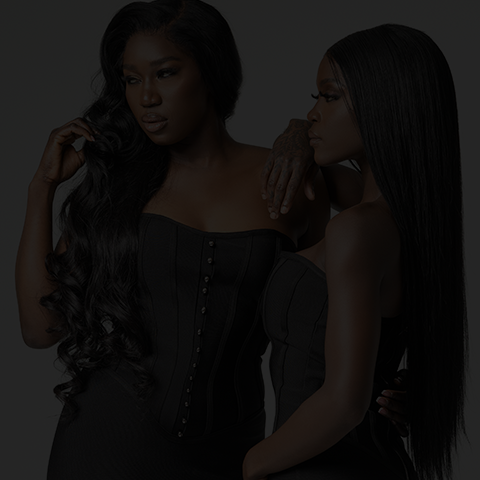Hey loves!
When it comes to investing in high-quality hair extensions, you've probably come across the terms "virgin" and "raw" hair. While they may sound similar, there are key distinctions that can impact the quality, longevity, and overall performance of your extensions.
Today, we're diving deep into the world of hair extensions and uncovering the truth about these two popular labels.
What is Virgin Hair?
- Unprocessed: Virgin hair refers to hair that has never been chemically altered. This means no dyeing, perming, bleaching, or any other chemical treatments.
- Cuticle Intact: Ideally, virgin hair retains its natural cuticle layer. The cuticle is like the hair's protective shield, and an intact cuticle contributes to shinier, healthier-looking hair.
- Quality Varies: It's important to note that the term "virgin" doesn't automatically guarantee top-notch quality. You can find low-quality virgin hair just as easily as high-quality.
What is Raw Hair?
- Unprocessed and Undyed: Raw hair takes the concept of "unprocessed" a step further. It refers to hair that is completely untouched – no chemicals, no steaming, and often even no washing.
- Cuticle Direction: Raw hair often retains its natural cuticle direction, which can contribute to smoother, less tangled hair.
- May Require More Preparation: Due to its raw state, raw hair may require more preparation before use, such as washing and conditioning.
- Highly Priced: Raw hair is typically more expensive than virgin hair due to its limited processing and high demand.
Key Differences Summarized:
- Processing: Virgin hair is unprocessed, while raw hair goes a step further by being completely untouched.
- Cuticle: Both ideally retain the cuticle, but raw hair often retains its natural cuticle direction.
- Preparation: Virgin hair may require less preparation, while raw hair often needs initial washing and conditioning.
- Price: Raw hair is generally more expensive than virgin hair.
Which Should You Choose?
The best choice depends on your individual needs and budget.
- Prioritize Quality: If you're seeking the highest quality and are willing to invest more, raw hair may be the best option.
- Consider Your Budget: If you're looking for a more budget-friendly option, virgin hair can still provide excellent results.
- Research Thoroughly: Do your research and choose reputable sellers who are transparent about the source and quality of their hair.
Remember:
- Proper Care is Crucial: No matter the type of hair you choose, proper care and maintenance are essential for long-lasting results.
I hope this blog post has shed some light on the world of virgin and raw hair!
Do you have any questions or experiences to share? Drop a comment below!



